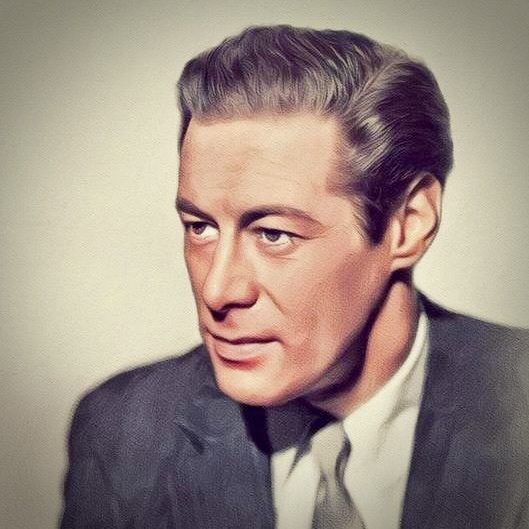Sometimes I stop everything I’m doing as a comfortable person with a job and income and food and a home and it hits me that there is a genocide happening in this moment and children being murdered with state-sponsored weapons, and it’s crippling.
I am not a young person, I have seen some shit in my decades. But it still hurts like hell every time I think about the suffering we’re still allowing as a species and that feeling and sensitivity to the knowledge has only gotten worse as I’ve gotten older. Greater awareness leads to greater pain because you start to see the whole picture; what we are as a species, what we can and cannot do, and how much sorrow and misery we put each other through needlessly.
When I was in high school I read a play called “Rhinoceros” about a small town where people kept turning into rhinos except the main character, who was kind of a John Nada worker type. He just watched friend after friend transformed into these wild destructive beasts, while the rest of the townspeople told the main character he was over reacting, paranoid, over thinking things. Then that townsperson or friend would turn into a rhino and go on a rampage.
I didn’t understand it in 1996. But in the last 5 years or so I was thinking about it, looked it up to see what it was about and reread it. Apparently, its about people turning into fascists, and I was like ooooohhhhhh yeah that’s dead on.
I also read lots of history but there is something about cultural work, maybe especially fictional, that let’s us explore social and cultural themes within our own hearts and minds in a way that actually affords a better understanding of history. I used to get a little irritated by people quoting Margaret Atwood and George Orwell in political discussion, like engage with actual political history and theory, but now I realize you can read like 3-4 absolute doorstop books about the history of Russia from like 1850-1935, or you can read Animal Farm in a day and get the gist. The gist isn’t good enough for some organizing and political work, but its a good enough principled foundation for the vast majority of people, esp young people. I just wish Orwell got to the part where Napoleon slaughters all the pigs who helped him take control of the farm in the first place.
During the great turmoil of the early 1900s, as war broiled but did not burn my ancestor died of his alcoholism on Skid Row in LA. The truth of history is that it’s 99 percent mundanity but with bright spots of activity in certain locations.
“There are decades where nothing happens, and there are weeks when decades happen”
[off topic?]
“The Zoo Station” by David Downing. It’s a novel set in pre-WW2 Germany. the hero is an English reporter living in Berlin. The author does a good job of covering both the problems of being a low level spy, and a guy who has to deal with a son and things like getting his clothes cleaned.
The history books I read prepared me for how awful everything would be but not how mundane it would feel
Rarely does history dwell on the individual, especially when you cover hundreds of years in a class. I will say that I was taught about the leading factors of WW2 far more than WW1. A lot of it dwelt on a people suffering from the weight of reparations stacked upon the general weight of losing a war. I don’t say this to justify either timeframes decline to fascism, but to draw a parallel.
In my opinion and personal experience the general population of the US has so much less power (purchasing and otherwise) and they’re mad. They want to be mad at something tangible and fascist direct it toward minorities.
We’re in an ever stranger situation than our predecessors, I think, for having all this information in our pockets instantly
Bingo. If humans were logical, having access to all this data would probably do more good than harm. Instead, people all flood into social media streams that show them they are correct to be racists, believe lies, or to care about nothing that truly matters.
I take it as a perspective-adjusting tool. Big stuff makes it into those textbooks and the people who lived through it did all the little day-to-day things as well as they could on the side. They made it – some, anyway, but enough for us to be here today – and now it’s our turn to embrace the suck until we can hand that off to the next poor bastards.
I am not embracing shit
Like, you have to figure out what to eat every day. WTH.
The kinds of things I was into always had a dude who was constantly hungry. That kinda makes it easy to relate to. No matter what crazy world ending shit was going on in the fiction, my dude still has to eat.
Someone definitively skipped the Trojan War alright.
Then maybe don’t?
Then maybe don’t
Continue with the minutae of daily life. What if that restlessness or terror is a message you should be paying attention to?
Removed by mod
You kinda missed the point of the post. Nothing they said implied that the history books didn’t contain monstrosities, just that the books didn’t prepare them for living life while monstrosities occur.
Just block them and move on. Its healthier that way.
O.o
I leave to sleep for the night and come back to a comment wasteland 🤣
Removed by mod
Removed by mod
Removed by mod
Removed by mod
Removed by mod
Removed by mod
Well then you better do a better job of explaining yourself cuz I read it the same way that guy did. I think you completely missed the point of this post.
Removed by mod
- I am not Floo
- I can read history, sympathize, and empathize.
- Every cataclysmic event we faced as a species, we have faced before, and wrote at length how sureal it felt for them, and terrible it was, and would never want it to reoccur again. Yet here, we are again, repeating history, because 55+% of the population are illiterately stupid.
- I’m doing everything in my power to plant trees I’ll never see, free deathcamps, and continue practicing anarchism with the few years I have left.
- We will get through this, dying, or living, but it will end. I can at the least control how I react to revisiting fascism again again.
Honestly the post should say ‘history classes’. Classes tend to cover a broad scope as do the textbooks they assign. I certainly have read larger picture nonfiction work, but I think it’s more common for books to cover more specific periods of time.








